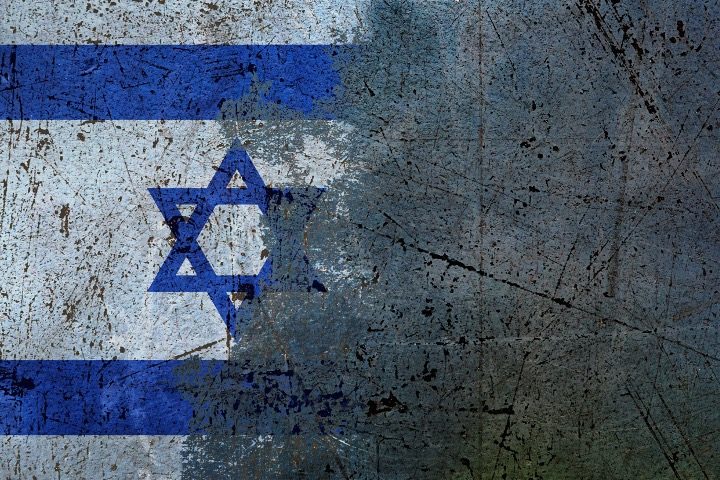
On January 7, The Washington Post reported that a clandestine examination from the Defense Intelligence Agency (DIA) in Washington concluded that Israeli forces would find it “difficult to succeed” in a two-front war against Hamas in Gaza and Hezbollah in Lebanon.
The Israeli Defense Forces (IDF) have engaged in tit-for-tat exchanges of fire with Hezbollah militants since the start of the war with terrorist group Hamas in October. Although Israeli Prime Minister Benjamin Netanyahu has pledged to make a “fundamental change” to the security situation along the Lebanese border, American officials have privately cautioned him against opening a second front, the Post reported.
“If it were to do so, a new secret assessment from the Defense Intelligence Agency (DIA) found that it will be difficult for Israel Defense Forces (IDF) to succeed because its military assets and resources would be spread too thin given the conflict in Gaza,” said the paper, quoting two unnamed officials and a classified report by the DIA.
Israel’s military is comparatively small in peacetime, depending on reservists to increase its ranks in times of conflict. When the war with Hamas started in October last year, the IDF called up around 360,000 reservists. A senior Israeli official told Reuters last week that an undisclosed number would soon be released from duty.
In wake of the reduction of Israel’s military force, Hezbollah has been vocal about its role in the conflict. The group’s leader, Hassan Nasrallah, claimed in November that his forces had held up around a third of Israel’s troops along the Israel-Lebanon border, preventing them from being mobilized to Gaza. He elaborated that Hezbollah’s continued clashes with the IDF were causing “a state of anxiety, anticipation, panic, and fear among the enemy’s political and military leadership.”
Various U.S. officials told the Post that they worry Netanyahu may attack Hezbollah to salvage his political career. The Israeli leader faced widespread protests before the start of the war, and was slammed afterwards for not preempting Hamas’ October 7 assault, which killed around 1,200 Israelis.
“A full-scale conflict between Israel and Lebanon would surpass the bloodshed of the 2006 Israel-Lebanon war on account of Hezbollah’s substantially larger arsenal of long-range and precision weaponry,” the paper stated, quoting officials who also warned that the militant group could fire missiles on Israel’s petrochemical plants and nuclear reactors.
Washington also worries that such a conflict could involve Iran — Hezbollah’s principal backer — and ultimately the United States, the paper’s sources said.
U.S. Secretary of State Antony Blinken arrived in Jordan on January 7, prior to visits to Israel, the West Bank, Qatar, the United Arab Emirates (UAE), Saudi Arabia, and Egypt. “We have an intense focus on preventing this conflict from spreading,” he said before meeting Jordanian King Abdullah II and Foreign Minister Ayman Safadi.
Blinken is scheduled to hold discussions in the UAE today before heading on to Israel. He warned that the Gaza war could have regional spillover effects without peace efforts, while Israel promised to continue fighting until Hamas is eradicated.
“This is a moment of profound tension for the region. This is a conflict that could easily metastasize, causing even more insecurity and suffering,” Blinken told a press conference in Doha before heading to Abu Dhabi.
Moreover, Blinken said he would tell Israeli officials that they had to put in more effort to forestall civilian casualties in Gaza, and that Palestinian civilians must be permitted to return home and not be forced to leave Gaza.
Jordan’s King Abdullah urged Blinken to use Washington’s clout over Israel to pressure it to declare an immediate ceasefire, warning of the “catastrophic repercussions” of Israel’s continued military campaign.
Initially restricted in scale, Hezbollah’s pounding of an Israeli intelligence base with missiles on Saturday in response to Israel assassinating Hamas deputy leader Saleh al-Arouri in Beirut several days earlier marked a significant escalation.
Hezbollah lambasted the killing as a “serious assault on Lebanon” that it would not let “pass without response and punishment.” In a speech the day after the strike, Hezbollah leader Hassan Nasrallah said that a “response is coming,” adding that the “decision has already been made.”
“If the enemy thinks about waging war against Lebanon, then our fighting will be with no ceiling, with no limits, with no rules. And they know what I mean,” Nasrallah said. “We are not afraid of war. We don’t fear it. We are not hesitant.”
On January 6, Hezbollah proclaimed that it had launched 62 missiles at an Israeli air surveillance base near the Lebanese border. The barrage was an “initial response” to the killing of al-Arouri, the Lebanese militants admitted.
Incoming rocket alerts sounded across northern Israel on January 6 as dozens of missiles attacked the base atop Mount Meron, the highest summit in Israeli territory beyond the Golan Heights. The base houses a radar station and surveillance apparatus used to direct Israeli warplanes over Lebanon and parts of Syria, and to intercept communications from both sides.
“As part of the initial response to the crime of assassinating the great leader Sheikh Saleh al-Arouri … the Islamic resistance targeted the Meron air control base with 62 missiles of various types,” Hezbollah declared in a statement.
The Lebanese paramilitary group portrayed the Meron base as “the sole center for administration, monitoring, and air control in the north of the usurping entity [Israel],” without which Israel has “no viable alternative.”
The IDF claimed that 40 missiles were fired at the base, without indicating whether the barrage caused any casualties, while Hezbollah said that it had caused “confirmed direct hits and injuries.” The IDF acknowledged that it launched airstrikes on launch sites in southern Lebanon in response.
Video footage shared on social media purportedly depicted a number of missiles affecting the base, as well as dense black smoke rising from several points on the mountaintop after the barrage.
Speaking during a visit to Lebanon on January 6, European Union foreign policy chief Josep Borrell cautioned that “nobody will win” if Israel and Lebanon clash in an open conflict.
Meanwhile, as Israel’s vigil for its hostages in Gaza enters into a fourth month, families of the hostages have felt increasing pangs of anguish amid faltering hopes for a deal to obtain their release.
Developments such as the assassination in Lebanon of al-Arouri and political strife about the future of Gaza after the war have left families feeling increasingly isolated.
“There’s an aspect of, kind of, hopelessness,” said Rebecca Brindza, a former senior executive at a Tel Aviv start-up, who left her paid employment to help the families of hostages in one of the various self-help groups that emerged from the aftermath of Hamas’ brutal attack on Israelis on October 7.
“A lot of us feel like the world kind of stopped on October 7,” she said. “And I think right now, what we’re seeing is that the world in many ways is moving on.”


